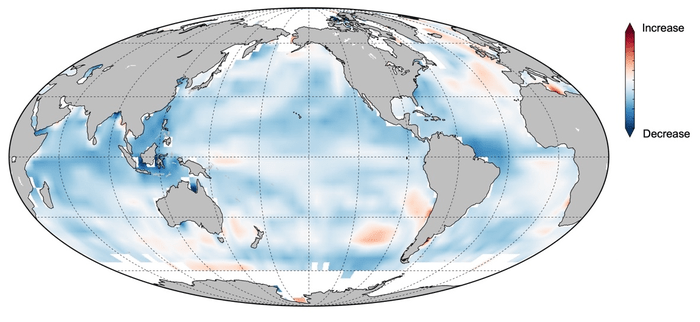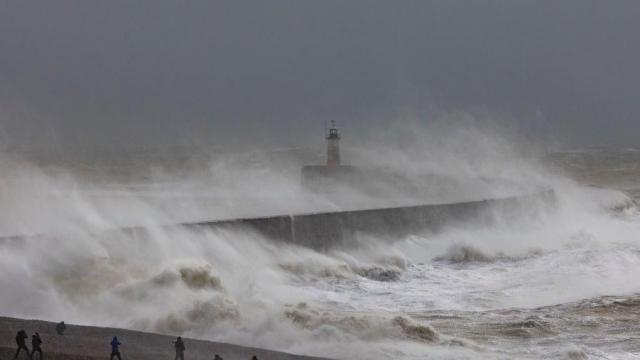Climate change is making the world’s oceans lose their “memory,” according to new research.
A report in Science Advances finds that ocean temperatures are going to fluctuate drastically as these waters lose their ability to regulate and “remember” recent conditions, including temperatures. Water doesn’t literally have a memory, of course — no matter what homeopaths claim — but the large bodies that make up the global ocean tend to be steadfast. Unlike weather, which can change drastically by the day, changes in the ocean happen little by little, and the ability to maintain that stability is like a “memory” for the ocean.
It’s connected to the thickness of the upper layer of the ocean, also called the mixed layer. That section is predicted to become shallower with climate change. Research has shown that the mixed layer becomes smaller in the spring and summer when there are higher temperatures, and a warming climate means that seasonal heat is more intense and longer-lasting in many parts of the world. This could result in sea surface temperatures that fluctuate unusually. Researchers across several institutes, including the University of Hawaii, used climate models to calculate different outcomes based on either low, medium, or high greenhouse gas emissions. They found that ocean memory is likely to decline around the world by the end of this century.

Daisy Hui Shi, a Farallon Institute climate researcher and lead author of the study, explained that, if the temperature of the ocean’s surface becomes harder to predict, it will have wide-reach effects. In fisheries management, for example, future stocks of fish are estimated based on the assumption that the ocean remains relatively stable. Without that stability, those fishery estimates will become unreliable, she told Earther. Unstable ocean environments could also make it difficult to predict major changes that will affect fragile marine ecosystems, adding new challenges for conservation efforts.
Hui Shi said that the models used in the study focused on climate change as a major factor and didn’t account for natural changes that happen in the ocean, like seasonal changes in currents, which is a limitation of research.
She noted that not being able to predict ocean temperatures may affect other weather predictions, too. “[It’s also about] precipitation over land… ocean memory is so important, and it’s really important to have predictability,” Hui Shi said. “We also use the ocean to forecast temperature and precipitation and even extreme events,” like heatwaves and heavy downpours.
Editor’s Note: Release dates within this article are based in the U.S., but will be updated with local Australian dates as soon as we know more.
